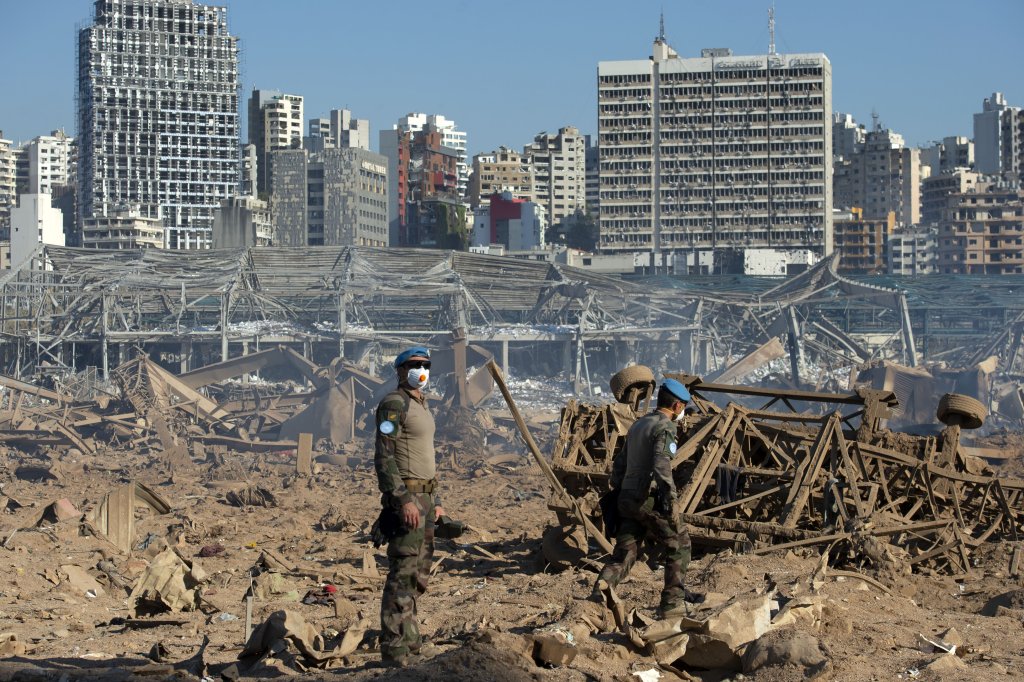Beirut Explosion: UNFPA’s Work

On August 4, 2020, an explosion of 2,750 tons of ammonium nitrate detonated in the Port of Beirut. The blast was felt 150 miles away and shattered windows over 1 mile away. 5,000 people were injured and 300,000 people -over 12% of Lebanon’s population- are homeless. 170 people have been confirmed dead. That number will likely rise as search and recovery efforts continue.
UNFPA’s Work
UNFPA is working to support the reproductive health of those affected by the explosion. The agency is on the ground providing medical assistance, distributing hygiene supplies and providing other critical support. Through its direct aid and by partnering with other local organizations, UNFPA aims to meet the needs of 81,000 women of reproductive age.
An estimated 3,900 women who are currently pregnant will be in need of antenatal, obstetric and neonatal care services in the coming months.
September 10
- A UNFPA article explains how the explosion has impacted people who menstruate. UNFPA is distributing dignity kits so women and girls can manage their periods, even in a crisis. The kits also contain information on gender-based violence (GBV) and how to get help. GBV tends to increase during emergencies.
- The BBC reported a fire had broken out in the Port of Beirut, just over one month after the city was rocked by a massive explosion. So far, no causalities have been reported, but the people of Beirut are reeling from yet another catastrophe.
August 27
- UNFPA is working with local partners to run mobile units that provide lifesaving medical care and reproductive health services to affected women.
August 16
- After calls to step down from the people of Lebanon, former Prime Minister Hassan Diab, and international leaders, like President Emanuel Macron of France, President Michel Aoun has stated that he will not resign. He further said that he has a responsibility to fill the presidency as fair elections would be nearly impossible at a time when the country is still reeling and many Lebanese face everyday struggles for food, shelter, and healthcare.
August 13
- UNFPA released an article on their work in the aftermath of the explosion. Highlights of the article include a focus on psychosocial care for people affected by the blast and the distribution of menstrual hygiene products to women and girls who are no longer able to acquire them, due to the destruction.
August 12
- UNFPA’s situation report on the explosion includes the following updates:
- 80 primary care and 15 hospitals have sustained damage.
- 1/3 of those affected are refugees. Lebanon has the highest per capita refugee population in the world.
- Food insecurity is very likely to increase as 90% of imports, including food stuffs, came in through the port.
- UNFPA expects gender-based violence and sexual exploitation and abuse to increase.
- UNFPA delivered 85,000 sanitary packs, 40,000 dignity kits with personal hygiene supplies, and 10,880 units of personal protective equipment to the local health system. Midwives are also on the ground to care for the 140,000 women and girls, including nearly 4,000 pregnant women, impacted by the blast.
August 11
- Lebanon imports most of its food through the port. UN officials worry the country could run out of bread in just a few weeks, if nothing is done.
- $300 million in humanitarian aid has been promised to the Lebanese people, after a conference led by the UN and France. President Trump of the United States has also pledged aid, though did not specify how much.
- COVID-19 cases are beginning to rise in the aftermath of the explosion in Beirut. 300 more cases and 7 deaths have been registered. The death count from the blast is now at 171 people with 6,000 people injured.
August 9
- Preliminary data shows the explosion impacted an estimated 13 primary health care facilities and between 6 to 10 hospitals.
- UNFPA is scaling up its efforts to meet the emerging needs of nearly 84,000 women of reproductive age and 48,000 adolescents among the 300,000 who have been displaced due to the catastrophe. An estimated 3,478 currently pregnant women will be in need of ante-natal and delivery care services.
- The Lebanese Government, headed by Prime Minister Hassan Diab, stepped down citing corruption and criticism of their handling of the explosion.
August 7
- 16 port officials have been taken into custody and others are being questioned. Some reports have circulated indicating that government officials knew of the materials at the port, but had failed to remove them.